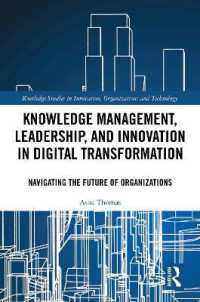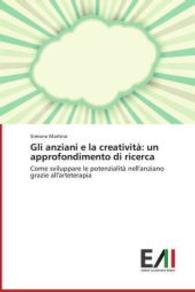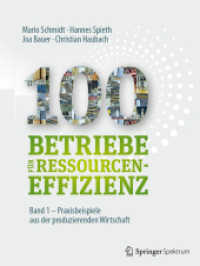- ホーム
- > 洋書
- > ドイツ書
- > Social Sciences, Jurisprudence & Economy
- > Education Science / Pedagogic
- > public education (school & university)
Full Description
The chapters are written by international authors who have been working in the fields of integrity sciences, focussing on ways to enhance ethics and integrity amongst students, academics and institutions (including schools).








